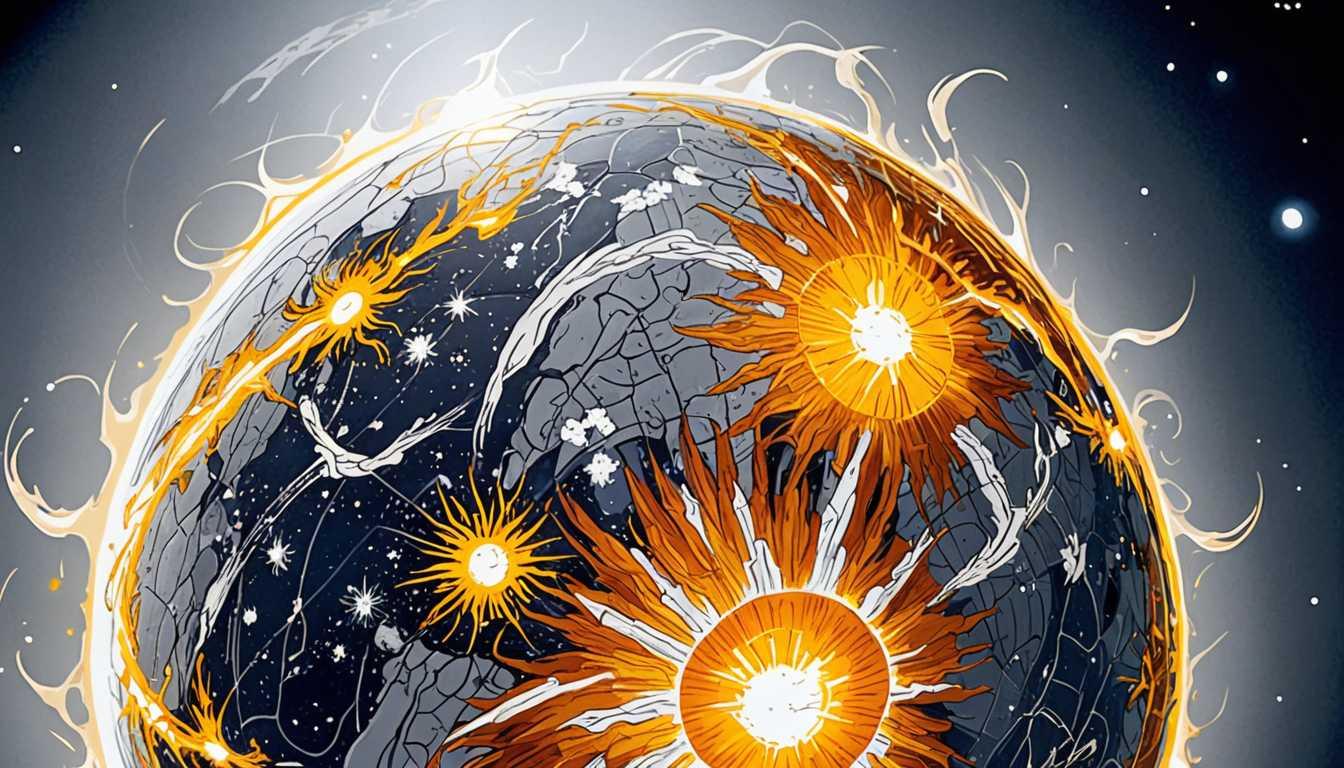Two Bangs: Universe's Untold Story
December 2023
JSTOR Daily
Introduction
Ever wondered if our universe's grand entrance was more of an encore? According to a mind-bending article on JSTOR Daily, scientists are now toying with the idea that the universe didn't just have one, but two Big Bangs! This new theory links the mysterious dark matter to our cosmic origins, suggesting a separate bang might have brought dark matter into existence. So, if you're ready to dive into a universe where double features aren't just for movie nights, this read is your ticket to the stars!
READ FULL ARTICLEWhy It Matters
Discover how this topic shapes your world and future
Unraveling the Cosmic Conundrum
Imagine standing on the edge of a cosmic cliff, peering back into the very dawn of existence. This is the thrill of exploring the origins of our Universe, a topic that not only stretches the fabric of our understanding but also connects us to the most fundamental questions of existence: How did everything begin? The recent proposition that our Universe started with not one, but two Big Bangs, introduces a mind-bending twist to this quest. This idea challenges the singular moment of creation that has dominated cosmological thought and opens up new avenues for understanding dark matter, a mysterious substance that invisibly influences the cosmos. For you, standing at the brink of your own discoveries, this topic serves as a gateway to exploring the unknown, pushing the boundaries of knowledge, and realizing that the cosmos is even more intriguing and complex than we currently comprehend.
Speak like a Scholar
Big Bang
The explosive event believed to mark the beginning of the Universe, where all matter, space, and time expanded from a singular point.
Dark Matter
A hypothetical form of matter that does not emit, absorb, or reflect light, making it invisible and detectable only through its gravitational effects on visible matter.
Inflation
A theory suggesting that just after the Big Bang, the Universe expanded at an exponential rate, faster than the speed of light, for a brief period.
Vacuum Energy
A form of energy thought to exist in space even when devoid of matter, playing a key role in the theory of inflation.
Gravitational Waves
Ripples in the fabric of space-time caused by some of the most violent and energetic processes in the Universe.
Plasma
A state of matter similar to gas in which a certain portion of the particles are ionized, existing naturally in the stars, including the sun.
Independent Research Ideas
Exploring the Role of Vacuum Energy in the Early Universe
Dive into the concept of vacuum energy and its critical role during inflation, investigating how this energy could shape our understanding of the Universe's expansion.
The Nature and Detection of Dark Matter
Research the methods scientists use to infer the existence of dark matter and the challenges they face in directly detecting this elusive substance.
Gravitational Waves as Cosmic Messengers
Study how gravitational waves are generated and detected, and their potential to unlock secrets of cosmic events, including the possibility of two Big Bangs.
The Evolution of Galaxies and Dark Matter's Influence
Investigate how the presence of dark matter could affect the formation and rotation of galaxies, providing insights into the structure of the cosmos.
Comparative Analysis of Cosmological Theories
Compare and contrast different theories of the Universe's origin, including the traditional Big Bang theory and the new two Big Bangs theory, analyzing their implications and how they might be tested.
Related Articles

Quantum Whispers: Noise-Cancelling Breakthrough
February 2023
Massachusetts Institute of Technology (MIT)

Unraveling Universe's First Light
July 2023
Stanford University

Neutrinos Unveiled: A Water Tale
March 2023
King's College London

Racing Solar Storms: Saving Satellites
April 2024
MIT Technology Review

Solar Wind's Speedy Secret Unveiled
June 2023
Imperial College London